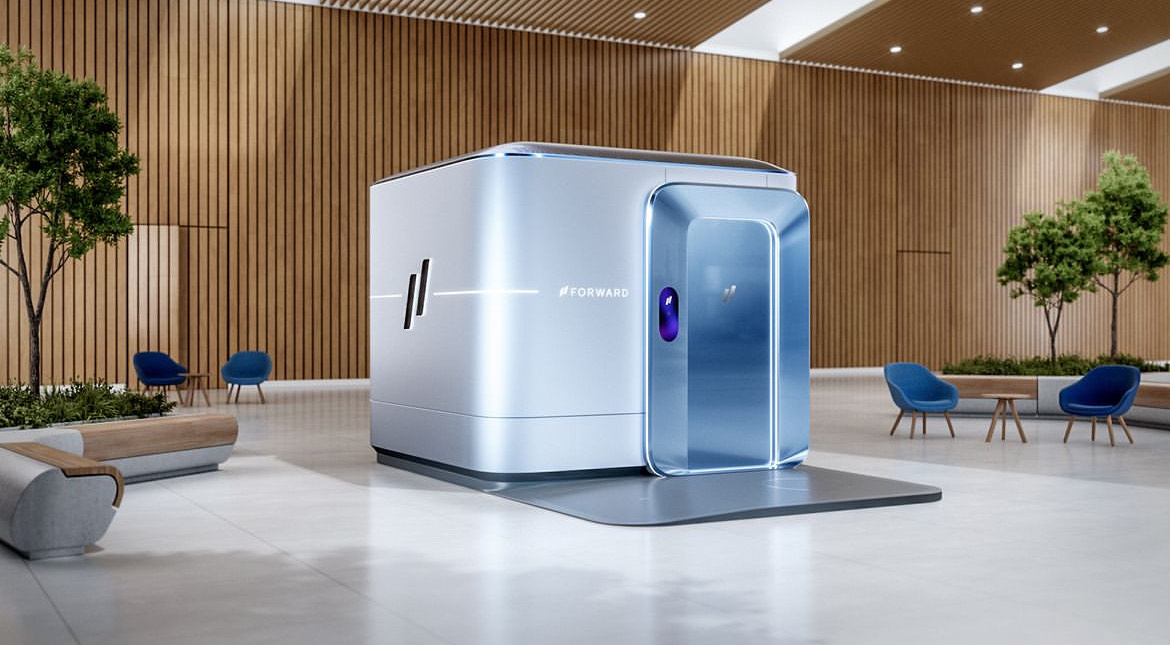When walking into a doctor’s office, we tend to see actual human doctors, walking around, doing their job. But how would you feel if you were greeted by a robot? In recent years, Forward, an Al doctor’s office, welcomes you and starts with an interactive robot. You simply place your hand on the robot, and it will scan and record your vitals right then and there.
Forward has six locations here in California. These offices are located in Los Angeles, Glendale, Santa Monica, San Francisco, West Hollywood, and lastly, Newport Beach. Forward is a high tech office, with a scanner that collects the necessary information about you. Cnet.com states, “Instead, in Forward’s ‘front of house,’ members check themselves in on tablets, where initials pop up according to what appointments are in queue. After checking in, members stand in front of a 3D body scanner that uses a variety of technologies — infrared, bioelectrical impedance, structured light — and a rotating platform to gather measurements that they then discuss with their physician.” Forward has a member program where their patients pay a price of $149 a month.
However, could AI impact on how students will learn? Will students get taught by robots in the future? What would happen if robots took over the entire medical field?
In student education, students who love to learn about the medical field, take classes to fulfill their dreams about working in health care. Ever wondered if AI will impact student education in ways it never did? Kristen Yates, a healthcare career pathway teacher at Golden Valley High School, mentioned, “AI is unlikely to impact the way students are taught about healthcare. Students will always need their foundational knowledge depending on the allied healthcare field they choose to enter and students will always need clinical experience in their field of choice.”
Continuing what Yates mentioned, “Students trying to learn in the medical field will need hands-on experience and if a robot does become a so-called teacher, these students won’t be able to do hands-on experiences. I do think AI can be used to enhance the technologies that are used in the medical field. Medicine is an art as well as a science and medicine requires empathy and human interaction.” As mentioned, students will need to learn in a hands-on environment to fully complete their dream in the medical field.
Overall, AI is unlikely to affect how undergraduate health education will be taught. The topic of artificial intelligence has been and will likely continue to be a huge topic. The future of AI continues to grow and introduce more topics with the help of AI.


